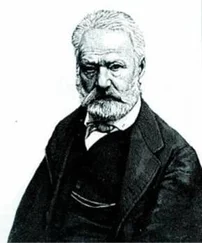Victor Hugo - Les Misérables, v. 4
Здесь есть возможность читать онлайн «Victor Hugo - Les Misérables, v. 4» — ознакомительный отрывок электронной книги совершенно бесплатно, а после прочтения отрывка купить полную версию. В некоторых случаях можно слушать аудио, скачать через торрент в формате fb2 и присутствует краткое содержание. Жанр: literature_19, foreign_antique, foreign_prose, на английском языке. Описание произведения, (предисловие) а так же отзывы посетителей доступны на портале библиотеки ЛибКат.
- Название:Les Misérables, v. 4
- Автор:
- Жанр:
- Год:неизвестен
- ISBN:нет данных
- Рейтинг книги:4 / 5. Голосов: 1
-
Избранное:Добавить в избранное
- Отзывы:
-
Ваша оценка:
- 80
- 1
- 2
- 3
- 4
- 5
Les Misérables, v. 4: краткое содержание, описание и аннотация
Предлагаем к чтению аннотацию, описание, краткое содержание или предисловие (зависит от того, что написал сам автор книги «Les Misérables, v. 4»). Если вы не нашли необходимую информацию о книге — напишите в комментариях, мы постараемся отыскать её.
Les Misérables, v. 4 — читать онлайн ознакомительный отрывок
Ниже представлен текст книги, разбитый по страницам. Система сохранения места последней прочитанной страницы, позволяет с удобством читать онлайн бесплатно книгу «Les Misérables, v. 4», без необходимости каждый раз заново искать на чём Вы остановились. Поставьте закладку, и сможете в любой момент перейти на страницу, на которой закончили чтение.
Интервал:
Закладка:
The pavilion, built of stone, in the Mansard taste, and panelled and furnished in the Watteau style, rock-work outside, old-fashioned within, and begirt by a triple hedge of flowers, had something discreet, coquettish, and solemn about it, befitting the caprices of love and a magistrate. This house and this passage, which have now disappeared, still existed fifteen years ago. In 1793 a brazier bought the house for the purpose of demolishing it, but as he could not pay, the nation made him bankrupt, and thus it was the house that demolished the brazier. Since then the house bad remained uninhabited, and fell slowly into ruins, like every residence to which the presence of man no longer communicates life. The old furniture was left in it, and the ten or twelve persons who pass along the Rue Plumet were informed that it was for sale or lease by a yellow and illegible placard which had been fastened to the garden gate since 1810. Toward the end of the Restoration the same passers-by might have noticed that the bill had disappeared, and even that the first-floor shutters were open. The house was really occupied, and there were short curtains at the windows, a sign that there was a lady in the house. In October, 1829, a middle-aged man presented himself and took the house as it stood, including of course the outhouse and the passage leading to the Rue de Babylone, and he had the two secret doors of this passage put in repair. The house was still furnished much as the president had left it, so the new tenant merely ordered a few necessary articles, had the paving of the yard put to rights, new stairs put in, and the windows mended, and eventually installed himself there with a young girl and an old woman, without any disturbance, and rather like a man slipping in than one entering his own house. The neighbors, however, did not chatter, for the simple reason that he had none.
The tenant was in reality Jean Valjean, and the girl was Cosette. The domestic was a female of the name of Toussaint, whom Jean Valjean had saved from the hospital and wretchedness, and who was old, rustic, and stammered, – three qualities which determined Jean Valjean on taking her with him. He hired the house in the name of M. Fauchelevent, annuitant. In all we have recently recorded, the reader will have doubtless recognized Valjean even sooner than Thénardier did. Why had he left the convent of the Little Picpus, and what had occurred there? Nothing had occurred. It will be borne in mind that Jean Valjean was happy in the convent, so happy that his conscience at last became disturbed by it. He saw Cosette daily, he felt paternity springing up and being developed in him more and more; he set his whole soul on the girl; he said to himself that she was his, that no power on earth could rob him of her, that it would be so indefinitely, that she would certainly become a nun, as she was daily gently urged to it, that henceforth the convent was the world for him as for her, that he would grow old in it and she grow up, that she would grow old and he die there; and that, finally, no separation was possible. While reflecting on this, he began falling into perplexities: he asked himself if all this happiness were really his, if it were not composed of the happiness of this child, which he confiscated and deprived her of, and whether this were not a robbery? He said to himself that this child had the right to know life before renouncing it, that depriving her beforehand, and without consulting her, of all joys under the pretext of saving her from all trials, and profiting by her ignorance and isolation to make an artificial vocation spring up in her, was denaturalizing a human creature and being false to God. And who knew whether Cosette, some day meditating on this, and feeling herself a reluctant nun, might not grow to hate him? It was a last thought, almost selfish and less heroic than the others, but it was insupportable to him. He resolved to leave the convent.
He resolved, and recognized with a breaking heart that he must do so. As for objections, there were none, for six years of residence between these walls, and of disappearance, had necessarily destroyed or dispersed the element of fear. He could return to human society at his ease, for he had grown old and all had changed. Who would recognize him now? And then, looking at the worst, there was only danger for himself, and he had not the right to condemn Cosette to a cloister, for the reason that he had been condemned to the galleys; besides, what is danger in the presence of duty? Lastly, nothing prevented him from being prudent and taking precautions; and as for Cosette's education, it was almost completed and terminated. Once the resolution was formed, he awaited the opportunity, which soon offered: old Fauchelevent died. Jean Valjean requested an audience of the reverend prioress, and told her that as he had inherited a small property by his brother's death, which would enable him to live without working, he was going to leave the convent, and take his daughter with him; but as it was not fair that Cosette, who was not going to profess, should have been educated gratuitously, he implored the reverend prioress to allow him to offer the community, for the five years which Cosette had passed among them, the sum of five thousand francs. It was thus that Jean Valjean quitted the Convent of the Perpetual Adoration.
On leaving it he carried with his own hands, and would not intrust to any porter, the small valise, of which he always had the key about him. This valise perplexed Cosette, owing to the aromatic smell which issued from it. Let us say at once that this trunk never quitted him again, he always had it in his bed-room, and it was the first and at times the only thing which he carried away in his removals. Cosette laughed, called this valise "the inseparable," and said, "I am jealous of it." Jean Valjean, however, felt a profound anxiety when he returned to the outer air. He discovered the house in the Rue Plumet, and hid himself in it, henceforth remaining in possession of the name of Ultime Fauchelevent. At the same time he hired two other lodgings in Paris, so that he might attract less attention than if he had always remained in the same quarter; that he might, if necessary, absent himself for a while if anything alarmed him; and, lastly, that he might not be taken unaware, as on the night when he so miraculously escaped from Javert. These two lodgings were of a very mean appearance, and in two quarters very distant from each other, one being in the Rue de l'Ouest, the other in the Rue de l'Homme-armé. He spent a few weeks now and then at one or the other of these lodgings, taking Cosette with him and leaving Toussaint behind. He was waited on by the porters, and represented himself as a person living in the country, who had a lodging in town. This lofty virtue had three domiciles in Paris in order to escape the police.
CHAPTER II
JEAN VALJEAN A NATIONAL GUARD
Properly speaking, however, Jean Valjean's house was at the Rue Plumet, and he had arranged his existence there in the following fashion: Cosette and the servant occupied the pavilion, she had the best bedroom, with the painted press, the boudoir with the gilt beading, the president's drawing-room with its hangings and vast easy chairs, and the garden. Jean Valjean placed in Cosette's room a bed with a canopy of old damask in three colors, and an old and handsome Persian carpet, purchased at Mother Gaucher's in the Rue Figuier St. Paul; while, to correct the sternness of these old splendors, he added all the light gay furniture of girls, an étagère, bookshelves with gilt books, a desk and blotting-case, a work-table inlaid with mother-of-pearl, a silver dressing-case, and toilet articles of Japanese porcelain. Long damask curtains of three colors, like those on the bed, festooned the first-floor windows, while on the ground-floor they were of tapestry. All through the winter Cosette's small house was warmed from top to bottom, while Jean Valjean himself lived in the sort of porter's lodge at the end of the back yard, which was furnished with a mattress and common bedstead, a deal table, two straw-bottomed chairs, an earthenware water-jug, a few books on a plank, and his dear valise in a corner, but he never had any fire. He dined with Cosette, and black bread was put on the table for him; and he had said to Toussaint, when she came, "This young lady is mistress of the house." "And you, sir?" Toussaint replied, quite stupefied. "Oh! I am much better than the master, – I am the father."
Читать дальшеИнтервал:
Закладка:
Похожие книги на «Les Misérables, v. 4»
Представляем Вашему вниманию похожие книги на «Les Misérables, v. 4» списком для выбора. Мы отобрали схожую по названию и смыслу литературу в надежде предоставить читателям больше вариантов отыскать новые, интересные, ещё непрочитанные произведения.
Обсуждение, отзывы о книге «Les Misérables, v. 4» и просто собственные мнения читателей. Оставьте ваши комментарии, напишите, что Вы думаете о произведении, его смысле или главных героях. Укажите что конкретно понравилось, а что нет, и почему Вы так считаете.












